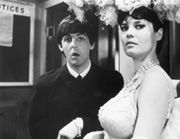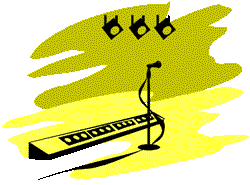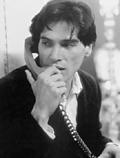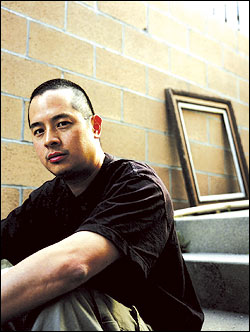WITH THE FAB FOUR already in control of English airwaves in 1964, A Hard Day’s Night today feels less like a stereotypical rock movie than a high-spirited celebration of the Beatle-inspired youth culture poised at the brink of (maybe, just possibly) taking over the world. That’s less an insult to Night‘s many subsequent imitators (though one is certainly intended) than a tribute to its still astounding assurance and resulting impact, which is nearly as deep as that of the Beatles’ music itself. The film’s early nightclub scene alone spawned a good portion of Andy Warhol’s filmography. The outdoor fantasia set to “Can’t Buy Me Love,” of course, sired The Monkees and chunks of Monty Python’s Flying Circus. American director Richard Lester’s deadpan visual style and anarchic timing made ripping him off de rigueur for up-and-coming movie and television directors in the years following this film.
A HARD DAY’S NIGHT
directed by Richard Lester with the Beatles and Wilfred Brambell runs December 8-14 at Varsity
Self-conscious pop signifiers abound, including the Mad comic book one character is seen reading and the television studio where much of the action takes place. None is cannier than the group itself simply playing “the Beatles.” Even this early in their careers, the individual Beatles had found the wit to portray themselves as caricatures. As dime-store pontificators upon Rolling Stone editors upon record catalog re-re-repackagers never tire of reminding us, the Beatles Changed the World and Are the Greatest Band Ever. (This chorus includes the Fabs themselves, who’ve just scored their latest No. 1 album with a hits collection.) Yet the movie treats their super-duperstardom the only way it could, like a grand joke. It’s an amazing double achievement: The movie both feeds and mocks the band’s legend with equal aplomb.
That’s “feeds,” not “fed”—present tense, not past. Night remains as immediate and contemporary as its stars’ timeless music. The passage of time has blunted their charisma not one iota. When, for instance, John Lennon starts playing “If I Fell” at the television soundstage and the sound audibly switches to the studio recording of the song, it’s like Dorothy setting foot in Technicolor Oz for the first time. The movie famously climaxes with the Beatles’ playing a live TV gig, which Lester intercuts with reaction shots from of audience members—almost all teenage girls—and in particular a blonde so overwhelmed she’s in tears. Watching A Hard Day’s Night again for the first time in years, I can only say that by the time she appeared onscreen, I knew how she felt.








